
Departments and Labs
Department Introduction
1. Artificial Intelligence
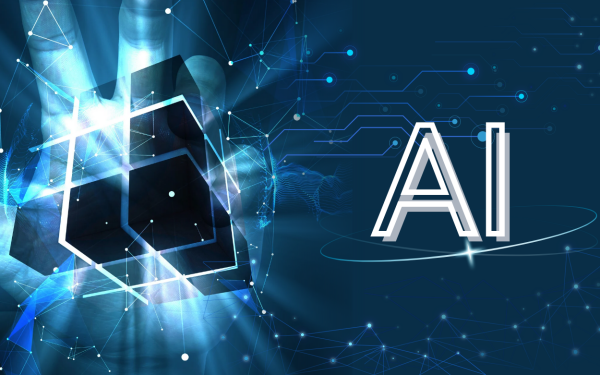
Based on the "Emerging Engineering Education" philosophy, this major aims to cultivate innovative and application-oriented talents in the field of new-generation artificial intelligence. Students will be enrolled in an experimental class for outstanding talents. The major is supported by a strong faculty, including Tianjin Distinguished Professors. It boasts two provincial-level platforms: the Tianjin Artificial Intelligence Education Popularization Base and the Tianjin International Joint Research Center for "Intelligent Computing and Biometric Recognition Technology." The major has established joint AI laboratories with renowned companies such as Dell and Baidu. Students will have opportunities to participate in faculty research and practical training both on and off campus.
Educational Objectives: This major addresses the strategic needs of China's new-generation AI development and meets the demands of Tianjin's AI industry. It aims to equip students with a solid foundation in mathematics, computer science, and artificial intelligence, along with relevant skills. Graduates will be application-oriented talents capable of engaging in intelligent data analysis, processing, application development, and the design and development of intelligent application systems.
Core Courses: Discrete Mathematics, Probability and Statistics, Optimization Methods, Data Structures and Algorithm Analysis, Python Programming, Introduction to Artificial Intelligence, Machine Learning, Natural Language Processing, Speech Recognition Technology, Neural Networks and Deep Learning, Pattern Recognition, Computer Vision, Intelligent System Development and Practice, Foundations of Cognitive Brain Science, Intelligent Robotics, Smart Healthcare, AI Ethics, and more.
Career Prospects:Graduates can pursue careers in artificial intelligence and related fields, such as computer vision, natural language processing, and AI+X applications. Employment opportunities are available in scientific research, education, enterprises, administrative departments, and further academic pursuits in related disciplines.
2. Intelligent Science and Technology

This program has established practical training bases both on and off campus in collaboration with several artificial intelligence enterprises, such as iFLYTEK and Dell. Each undergraduate student is assigned an academic advisor and has the opportunity to participate in faculty research projects and engage in corporate practical training. The teaching faculty, led by Tianjin Distinguished Professors, is highly qualified in both teaching and research. The team includes multiple overseas doctoral degree holders, and faculty members have received awards such as the Tianjin Basic Teaching Skills Competition Prize and the Tianjin Science and Technology Progress Award.
Educational Objectives: This program aims to cultivate students with knowledge and skills in computer science, intelligent control, intelligent systems and methods, intelligent computing, and sensor information processing. Students will master fundamental skills in computer science, machine perception, machine learning, robotics, and computer vision, enabling them to comprehensively apply their knowledge to analyze and solve practical problems. Graduates will be capable of engaging in teaching, research, and development applications in intelligent information processing, intelligent control, intelligent human-computer interaction, intelligent computing, and intelligent system integration across scientific research, education, enterprises, institutions, and administrative departments. They will become interdisciplinary talents proficient in intelligent information technology and professional skills.
Core Courses: Probability and Statistics, Linear Algebra, Discrete Mathematics, Numerical Analysis, Matrix Theory, Game Theory, Operations Research, Python Programming, Digital Image Processing, Algorithm Analysis and Design, Computer Organization Principles, Embedded Systems and Design, Principles of Automatic Control, Intelligent Control Technology, Introduction to Artificial Intelligence, Pattern Recognition, Digital Signal Processing, Intelligent Sensing Technology, Intelligent Robotics, Machine Learning, Neural Networks, Speech Recognition Technology, Natural Language Processing, Data Mining and Data Warehousing, Intelligent Computing, etc.
Career Prospects: Graduates can pursue engineering technology or system development roles related to intelligent technologies in government agencies, schools, banks, the information industry, and national economic enterprises and institutions. They also have the option to pursue further education and academic degrees.
3. Data Science and Big Data Technology
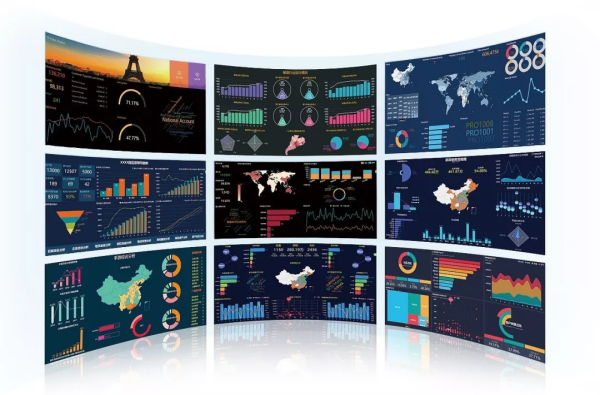
This major has established on- and off-campus practical training bases in collaboration with renowned enterprises such as Dell. It is dedicated to cultivating practical and high-quality professionals in big data applications. The major boasts a highly qualified faculty with strong research capabilities, guiding students to participate in relevant disciplinary competitions and the College Students' Innovation and Entrepreneurship Training Program, achieving numerous honors.
Educational Objectives: This major aims to develop well-rounded talents with moral, intellectual, physical, and aesthetic grounding. Students will acquire a solid mathematical foundation and mathematical thinking abilities, master the fundamental theories and skills of information and data science, including foundational knowledge in mathematics, statistics, and computer science for big data applications. They will learn the basic theories, methods, and skills of data modeling, efficient analysis, and processing, receive scientific research training, and become advanced specialists capable of solving practical problems in information technology and data mining, as well as professional applied talents engaged in big data processing, big data system development, and construction.
Core Courses: Discrete Mathematics, Computer Organization Principles, Data Structures, Algorithm Analysis and Design, Python Programming, Mathematical Modeling, Operating Systems, Database Principles, Computer Networks, Statistics, Operations Research, Data Mining and Data Warehousing, Big Data Storage and Computing (Hadoop), Big Data Analysis and Applications, Machine Learning Principles and Applications, Introduction to Artificial Intelligence, Big Data Distributed Systems, NoSQL Databases, Introduction to Big Data, Data Visualization Technology, Cloud Computing Application Development Technology, Mobile Application Development Technology, Java Programming, Big Data Fast Computing (Spark), Big Data Query and Processing, etc.
Career Prospects: Graduates are well-suited for roles in government agencies and enterprises, where they can engage in big data analysis for sectors such as light industry, economics, finance, trade, and commerce. They can also develop new products and services based on big data technologies. Additionally, graduates may pursue further education or academic degrees.
4.Digital Media Technology
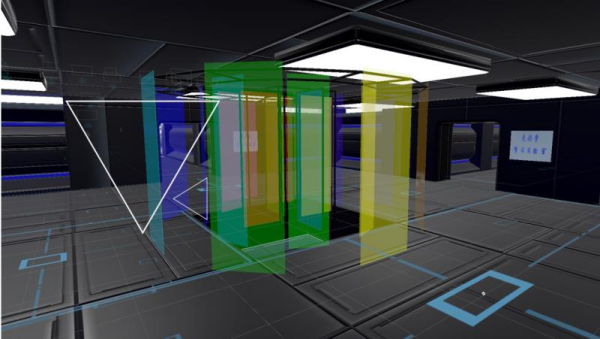
Digital Media Technology is an interdisciplinary major that integrates digital technology, media, and artistic design. It involves research, creativity, and production in fields such as gaming, mobile internet, interactive entertainment, film, and animation. The program focuses on cultivating high-level applied professionals who are proficient in modern computer technologies and engaged in digital media production, graphic image processing, animation design, virtual reality design, and more. As part of the digital media cultural industry, it is closely linked to computer technology and digital media technology, forming an intelligent cultural and creative industry that has become a new economic growth point and pillar industry in many economically developed cities. Digital Media Technology, based on computer and mobile internet technologies, plays a crucial role in advancing the development of the intelligent cultural and creative industry.
Educational Requirements:
Students in this program should possess good ideological and political素养; basic natural science knowledge and scientific literacy; a solid foundation in computer science and technology; comprehensive mastery of the basic principles, knowledge, and development skills of digital media technology; strong hands-on computer skills and English communication abilities; the ability to creatively plan, design, develop, disseminate, operate, and manage data for digital media content products; practical and innovative abilities adapted to the evolving landscape of digital media practices; teamwork and communication skills; preliminary scientific research capabilities and problem-solving skills; and lifelong learning abilities.
Educational Objectives:
This program aims to cultivate high-quality applied talents who can adapt to the demands of new technologies and new media development, as well as the current trend of diversified cultural communication. Graduates will possess systematic theoretical knowledge and practical skills in digital media technology, master professional knowledge in computer application technology, new media editing and production, and artistic design. They will be capable of working in cultural industries and related sectors such as government departments, educational institutions, publishing media, the internet, new media, and multimedia creativity. Their roles may include digital content creative expression, new media editing, publishing, multimedia information integration, and new media operations, embodying innovative spirit and practical abilities.
Program Features: Leveraging the university's strengths in light industry disciplines, the program optimizes its curriculum and actively promotes industry-academia collaboration. Adhering to the principle of "integrating art and engineering," it encompasses interdisciplinary studies including computer science and technology, artificial intelligence, and art, as well as mass communication media such as film, television, mobile internet, and new media. By comprehensively applying computer and modern information engineering technologies, it digitally presents cultural creativity. The program aims to cultivate high-quality talents for the intelligent cultural and creative industry and leaders with strong teamwork spirit, innovation awareness, and engineering practical abilities.
Core Courses: C Language Programming, JAVA Programming, Data Structures, Discrete Mathematics, Digital Media and Publishing, Digital Media Production, Python Programming, Digital Image Processing, Computer Graphics, Digital Color Principles and Applications, 3D Modeling, Game Design and Development, Virtual and Augmented Reality Technology, Human-Computer Interaction Technology, Web Design and Website Development, Mobile Application Development, Animation Production, Non-linear Editing, Digital Rights Management, Interactive Typesetting Technology, etc.
5. Computer Science and Technology (Information Processing) Sino-Foreign Cooperative Education Program

Program Features: This program is a Sino-foreign cooperative education initiative between our university and the Kyoto College of Graduate Studies for Informatics (Japan), following a 4+0 model (all four years of study completed at Tianjin University of Science and Technology). Students are jointly trained by both Chinese and Japanese institutions. The first foreign language is Japanese, with beginner-level Japanese courses starting in the first year. Experienced Japanese language teachers provide three years of intensive instruction to systematically develop listening, speaking, reading, and writing skills, aiming for JLPT N2 proficiency. From the second to the fourth year, students focus on foundational and specialized courses. The curriculum includes a significant number of imported courses, taught in person by experienced faculty dispatched from the Kyoto College of Graduate Studies for Informatics. While cultivating Japanese communication skills, students also study computer theory, software, and hardware design and development. The curriculum emphasizes practical skills and real-world application abilities. Upon meeting the program requirements, students will be awarded a bachelor's degree from Tianjin University of Science and Technology, China. During their studies, eligible students may apply to study in Japan for one year.
Faculty Strength: The partner institution, Kyoto College of Graduate Studies for Informatics, established in 1963, was Japan's first computer education school and remains the only institution in Japan offering professional master's degrees in the IT field. The program faculty consists of resources from Tianjin University of Science and Technology's key (nurturing) discipline of Computer Science and Technology and high-quality faculty from the Kyoto College of Graduate Studies for Informatics. Chinese faculty members have undertaken over 10 National Natural Science Foundation projects and provincial/ministerial-level research projects, while foreign faculty possess strong research capabilities and practical industry experience.
Core Courses: Intensive Japanese, Japanese Speaking and Conversation, Japanese Listening and Speaking, Advanced Mathematics, Discrete Mathematics, Digital Circuits and Digital Logic, Data Structures, C++ Programming, Operating Systems, Computer Network Technology, Algorithms and Analysis, Software Engineering, Computer Graphics, Embedded Operating Systems, Network Databases, Object-Oriented Programming, Software Testing, etc.
Career Prospects:Graduates can pursue careers in computer technology-related industries, such as software development for the Japanese market, and work in domestic and international enterprises, companies, higher education institutions, financial and foreign trade systems, and other units. The program sees over 25% of its graduates pursue further studies or study abroad each year.
6. Computer Science and Technology
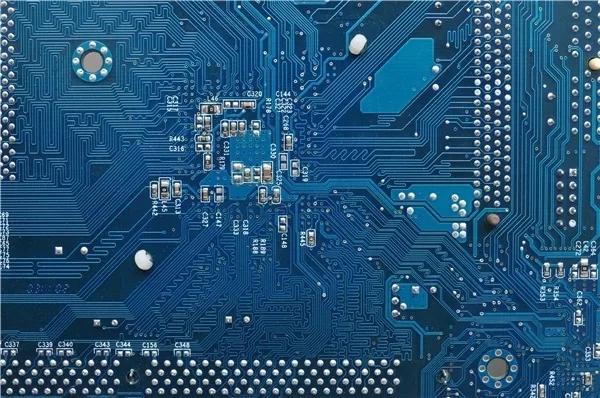
This program began enrolling undergraduate students in 1997 and is the earliest information-related undergraduate program established at our university. To date, it has cultivated over 1,700 undergraduate students and 3 international students. For many years, the program has been dedicated to training practical and high-quality IT professionals. Students have consistently won awards in national competitions such as the Oracle Database and Red Hat Linux Competitions, the Freescale Cup "Computer Mouse Maze" Contest, the China College Students Computer Design Competition, and the Blue Bridge Cup. The program has also established off-campus internship bases in collaboration with enterprises like Oracle and Baibangda.
Educational Objectives: This program aims to cultivate well-rounded talents with moral, intellectual, and physical development, who adhere to laws and regulations, possess social and environmental awareness, strong professional capabilities, and comprehensive qualities. Students will systematically master the foundational theories, basic skills, and methods in the field of computer science and technology, with an emphasis on developing practical innovation capabilities in software and hardware design, development, and application. Graduates will be qualified for advanced roles in computer science research, computer system design, development, and application. The program strives to cultivate high-quality applied talents engaged in scientific research and application in computer-related fields. Graduates are well-suited for roles in the computer science and technology industry, involving the design, development, and management of computer software and hardware products. They can also pursue scientific research and application management in research institutions, enterprises, and public institutions, or continue their studies for master's degrees in this or related disciplines.
Core Courses: C Language Programming, Discrete Mathematics, Digital Logic, Computer Organization Principles, Data Structures, Object-Oriented Programming, Algorithm Analysis and Design, Operating Systems, Database Principles, Computer Networks, Embedded Systems, Digital Image Processing, Java Development Technology, Information System Development and Practice, Mobile Application Development Technology, Big Data Technology, Compiler Principles, Embedded Operating Systems, Introduction to Machine Learning, Computer Graphics, Software Engineering, etc.
Career Prospects: After graduation, students can engage in the design, development, and management of computer software and hardware products in government agencies, schools, banks, and various enterprises and institutions. Through hard work, they may also pursue further education opportunities at our university or other renowned domestic institutions.
7. Software Engineering

This program began enrolling undergraduate students in 2005 and has long been dedicated to cultivating practical and high-quality advanced software professionals. Students have consistently achieved outstanding results in national competitions such as the National Software and Information Technology Professionals Competition, the "China Software Cup" University Student Software Design Competition, and the "Freescale Cup" Computer Mouse Maze Contest. The program has established off-campus internship bases in collaboration with enterprises like Baibangda Technology Co., Ltd. and Oracle. In the 2014 Tianjin Higher Education Undergraduate Program Evaluation, this program ranked third.
Program Features: Leveraging the university's strengths in light industry disciplines, the program optimizes its curriculum to cultivate software engineering talents with a background in light industry knowledge. It actively promotes industry-academia collaboration and explores international educational initiatives, aiming to develop industry leaders with strong teamwork spirit, innovation awareness, engineering practical abilities, and a global perspective.
Core Courses: C Language Programming, Computer Organization Principles, Data Structures, Discrete Mathematics, Operating Systems, Algorithm Analysis and Design, Computer Networks, Java Programming, Software Engineering, Object-Oriented System Analysis and Design, Software Testing Technology, Introduction to Database Systems, Software Quality and Project Management, Cloud Computing and Big Data, Introduction to Artificial Intelligence, Formal Methods in Software Engineering, JavaEE Architecture and Development, Database Application and Development, Mobile Platform Application Development, etc.
Career Prospects: Graduates can pursue careers in software engineering technology research, software design and development, software testing, software services, and management in government agencies, schools, banks, and various enterprises and institutions. Through hard work, they may also secure opportunities for further education at our university or other renowned domestic institutions.
8.Internet of Things Engineering
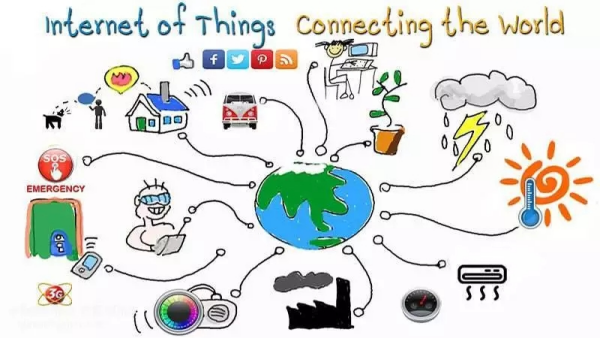
This program began formally enrolling undergraduate students in 2013 and has established off-campus practical training bases in collaboration with several renowned IoT-related enterprises. Students have repeatedly received national and Tianjin municipal-level awards for innovation and entrepreneurship projects, "Internet Plus" competitions, and IoT innovation and engineering application design contests. The Internet of Things Engineering program has been recognized as a Tianjin municipal-level teaching team, and faculty members have多次 won awards in the Tianjin Basic Teaching Skills Competition.
Educational Objectives: This program focuses on the strategic emerging field of "Internet of Things Engineering" and aims to cultivate well-rounded talents with moral, intellectual, physical, aesthetic, and labor education development. Students will systematically master relevant theories, methods, and skills in IoT, equipped with foundational knowledge in communication technology, network technology, sensor technology, and IoT system application design. Graduates will possess IoT application skills and practical engineering capabilities, enabling them to engage in IoT-related technical work in the information industry, national economic enterprises, and institutions, as well as pursue advanced applied roles in technical development and research at higher education institutions and research organizations.
Core Courses: C Language Programming, C++ Programming, Data Structures, Embedded Systems and Design, RFID Principles and Applications, Sensor Network Principles and Applications, Computer Organization Principles, Sensor Principles and Applications, IoT Communication Technology, Introduction to IoT Engineering, Python Programming, Java Programming, Mobile Terminal Programming, IoT Data Processing, IoT Application System Design, IoT Engineering Planning and Design, Comprehensive IoT Training, Artificial Intelligence, Big Data Principles and Applications, etc.
Career Prospects: Graduates can pursue careers in IoT-related technical or system research and development in government agencies, schools, banks, the information industry, national economic enterprises, and institutions. They also have the option to continue their studies and pursue advanced degrees.

